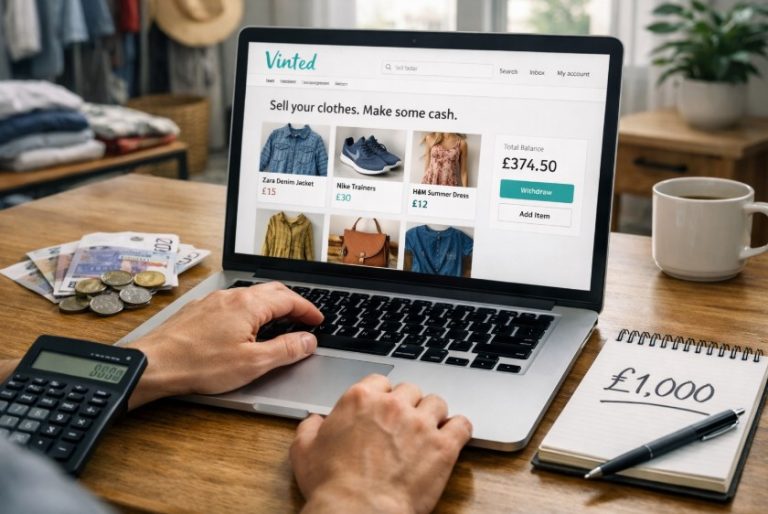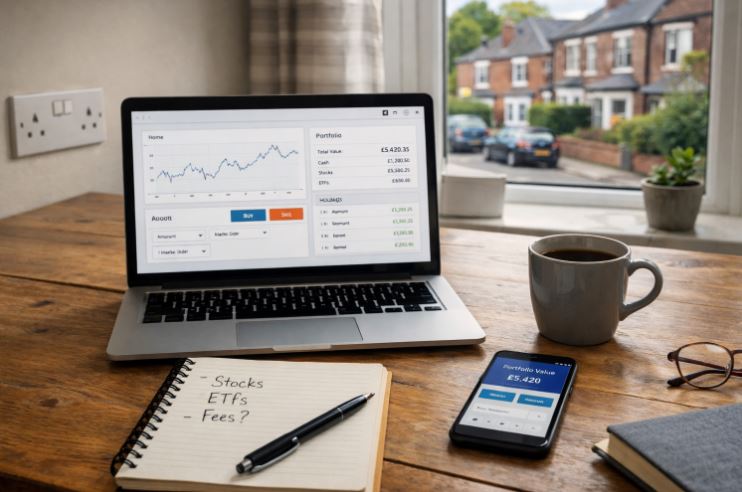The advent of Buy Now Pay Later (BNPL) services has changed the way consumers shop, offering flexibility and convenience. Among the frontrunners in this industry, Klarna stands out as a popular choice for UK shoppers.
But while Klarna helps spread the cost of purchases, many users wonder: “Does Klarna improve credit scores?”
In this guide we’ll explore how Klarna’s credit checks, repayment processes, and data sharing with credit reference agencies influence your credit score. With this information, you’ll be better equipped to use Klarna responsibly and make informed financial decisions.
Understanding Klarna and Its Credit Checks

Klarna is a Swedish fintech company that provides flexible payment options such as:
- Pay in 3 Instalments: Interest-free payments split into three equal parts.
- Pay Later in 30 Days: Defer payment by a month without additional charges.
- Financing Options: Longer-term payment plans that may include interest.
To determine eligibility, Klarna performs credit checks. The type of check varies by payment plan:
- Soft Credit Check: Soft checks are performed for short-term, interest-free plans like “Pay Later in 30 Days.” These checks do not affect your credit score and are visible only to you on your credit report.
- Hard Credit Check: Hard checks occur when applying for financing options. These checks are recorded on your credit file and can temporarily lower your credit score as they signal that you seek new credit.
By assessing your creditworthiness, Klarna ensures that its services align with responsible lending practices.
How Klarna Can Impact Your Credit Score?

Klarna’s impact on your credit score largely depends on how you use its services and the payment options you choose. Let’s explore this further:
Positive Impacts
- Building Payment History: Klarna reports your repayment behaviour to credit reference agencies. By making payments on time, you demonstrate reliability, which is a crucial factor in building or improving your credit score.
- Enhancing Credit Mix: Credit agencies value a diverse credit portfolio. Responsible use of Klarna alongside other forms of credit (e.g., credit cards or personal loans) shows that you can manage multiple credit types effectively.
Negative Impacts
- Missed Payments: If you miss payments or default, Klarna will report this to credit agencies. Missed payments can significantly damage your score, especially if they are not resolved promptly.
- Excessive Hard Credit Checks: Applying for financing plans that require hard credit checks can lower your credit score, especially if multiple checks occur in a short period.
- Over-Reliance on BNPL: Using Klarna excessively may signal financial dependency to lenders, which could hurt your creditworthiness.
By understanding how your actions affect credit reporting, you can use Klarna strategically to maintain or improve your credit score.
Does Klarna Improve Credit Score?
Factors That Determine Credit Score Changes
Several elements influence whether Klarna improves or damages your credit score:
- On-Time Payments: Consistently paying on time is one of the most effective ways to maintain a healthy credit score. Klarna users who automate payments or stay vigilant about due dates are less likely to face negative impacts.
- Credit Utilisation Ratio: This ratio measures the percentage of available credit you are using. For example, if your total credit limit is £2,000 and your Klarna spending pushes you to £1,800, your utilisation ratio becomes 90%, which is considered high. Keeping this ratio below 30% is ideal for maintaining a strong credit score.
- Creditworthiness Factors: Klarna considers your income, outstanding debt, and credit history when performing checks. Your ability to manage existing credit lines responsibly will influence both your approval odds and your overall credit score.
- Payment Frequency and Amount: Making regular payments on high-value Klarna purchases can reflect positively on your financial habits. Conversely, sporadic or inconsistent repayment behaviour can raise red flags to lenders.
Tips for Using Klarna Responsibly

Maximising the benefits of Klarna while protecting your credit score requires careful planning and responsible usage:
- Choose Manageable Payment Plans: Before committing to a Klarna plan, evaluate your financial situation to ensure you can meet repayment deadlines. Opt for short-term, interest-free plans whenever possible.
- Monitor Your Credit Report: Regularly reviewing your credit report helps you track the impact of Klarna usage on your score. Services like ClearScore or Equifax can alert you to changes and help you spot inaccuracies.
- Avoid Overusing Klarna: Klarna should not be your primary method of financing purchases. Using it occasionally for essential items is more sustainable and less risky.
- Set Payment Reminders or Automate Payments: Missing a Klarna payment can lead to late fees and harm your credit score. Automation ensures you meet deadlines consistently.
- Don’t Open Multiple Klarna Accounts: Applying for multiple Klarna financing options in a short time can result in repeated hard checks, which may lower your score.
By following these strategies, you can use Klarna effectively without compromising your financial health.
Klarna vs Traditional Credit Options

Understanding how Klarna compares to traditional credit options helps highlight its strengths and potential drawbacks:
| Feature | Klarna | Credit Cards/Loans |
| Approval Criteria | Easier to qualify for BNPL plans | Stricter requirements based on income, credit score, and debt |
| Impact on Credit Score | Varies by usage; soft checks don’t affect, but hard checks and missed payments do | Long-term positive or negative effects depending on repayment history |
| Fees | Late fees for missed payments; interest on financing plans | Interest rates, annual fees, and late fees |
| Flexibility | High flexibility for short-term plans | Less flexible; fixed repayment terms and interest rates |
| Usage Limitations | Primarily for retail purchases | Can be used for a broader range of expenses |
Advantages of Klarna
- Easier access for individuals with limited or poor credit histories.
- Short-term options often come with no interest, making them more affordable for smaller purchases.
- Offers a modern, user-friendly interface for managing payments.
Advantages of Traditional Credit Options
- More structured and reliable for building long-term credit.
- Greater versatility in spending.
- Often better suited for large expenses or emergencies.
While Klarna is an excellent choice for spreading the cost of occasional purchases, traditional credit cards and loans remain the gold standard for building a robust credit profile. Striking a balance between these options ensures financial stability and credit growth.
Conclusion
Klarna’s ability to improve your credit score hinges on how you use its services. By making timely payments and managing your BNPL usage responsibly, you can positively influence your credit history. However, missed payments or excessive reliance on Klarna can have adverse effects.
Ultimately, Klarna is a valuable tool for spreading costs, but its financial impact depends on your repayment habits. Treat it as part of your broader financial strategy, not a replacement for traditional credit solutions.
FAQs
Does Klarna report to credit reference agencies?
Yes, Klarna shares repayment data with credit agencies in the UK, influencing your credit score.
Can Klarna help improve my credit score?
Timely repayments and responsible usage can boost your credit score by building a strong payment history.
What happens if I miss a Klarna payment?
Missed payments are reported to credit agencies, which can lower your score and result in late fees.
Does Klarna always perform hard credit checks?
No, hard checks are only conducted for financing plans. Short-term options involve soft checks, which do not impact your score.
Are there risks to using Klarna?
Yes, overusing Klarna or missing payments can harm your credit score and financial health.
What alternatives exist for improving credit?
Credit-builder credit cards, secured loans, and responsible traditional credit use are effective alternatives.
How can I check my credit score?
Use free services like ClearScore, Equifax, or Experian to monitor your credit score and report.




